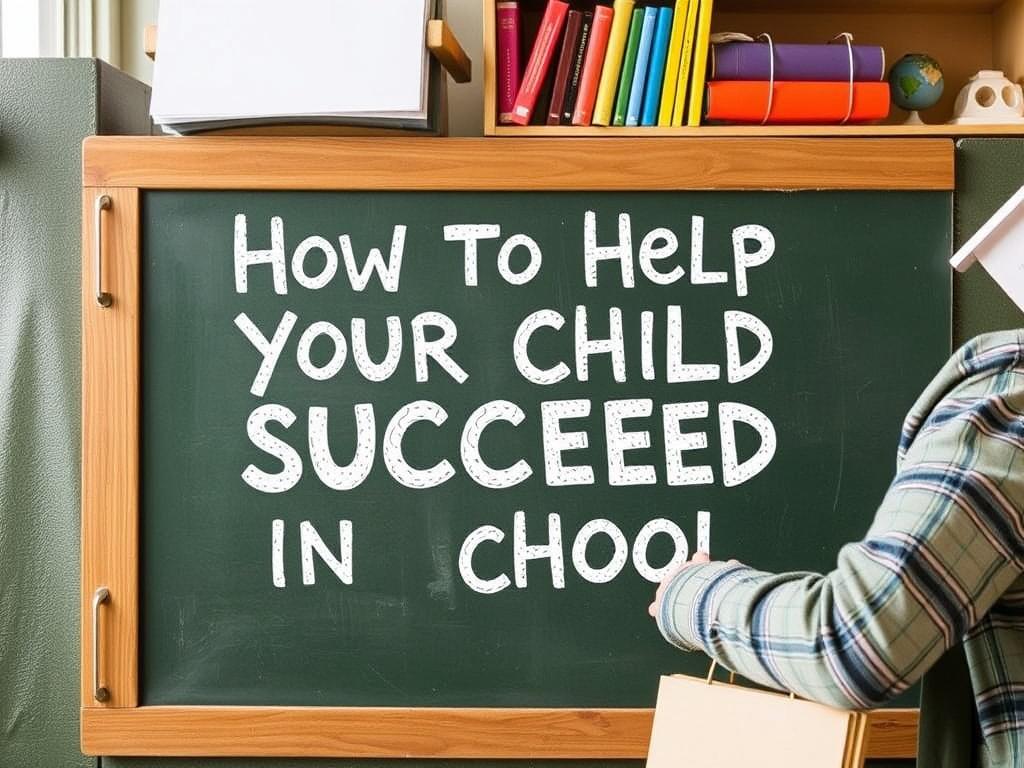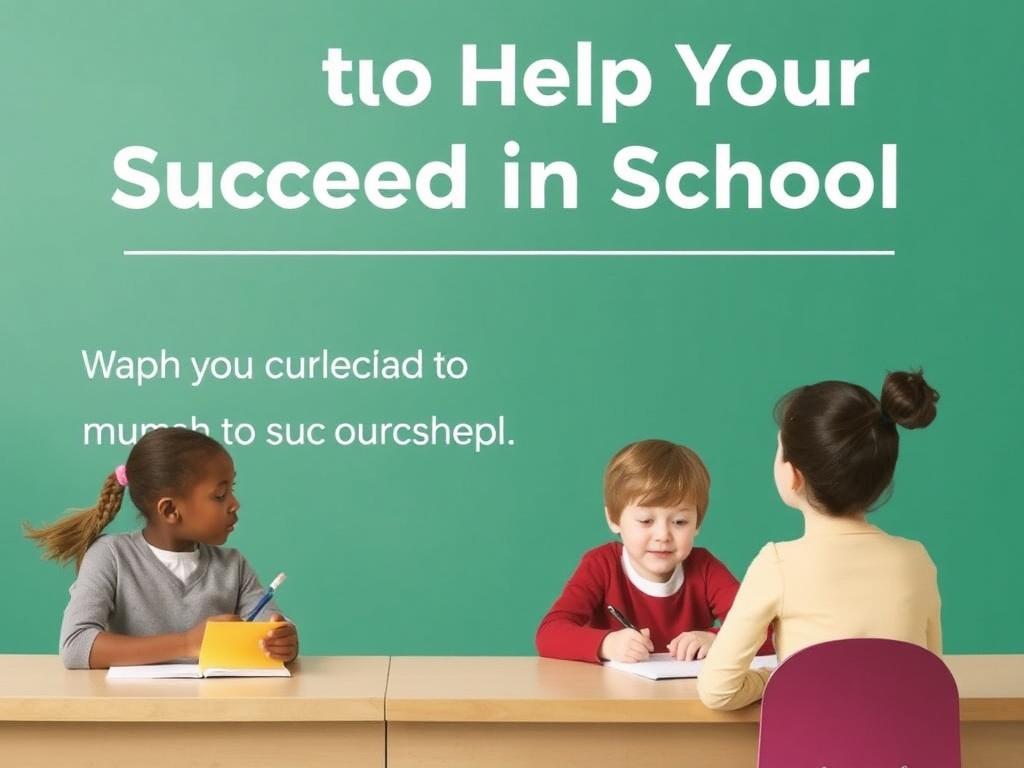SQLITE NOT INSTALLED
Every parent wants their child to do well in school and thrive academically, socially, and emotionally. But with all the demands of modern life, and the ever-changing education landscape, it can sometimes feel overwhelming to know exactly how to support your child’s success. Whether your child is just starting kindergarten or navigating high school, there are proven strategies and approaches that can make a meaningful difference. In this comprehensive guide, we’ll explore how to help your child succeed in school in ways that are practical, effective, and grounded in real-world experience.
Helping your child succeed in school is not just about making sure they have good grades—it’s about nurturing their confidence, curiosity, and love for learning. This article will cover everything from creating a supportive home environment, improving study habits, understanding the school system, boosting motivation, to collaborating with teachers and managing challenges along the way. So, let’s dive into this journey together and unlock the secrets to your child’s academic success!
Understanding Your Child’s Educational Needs

Before jumping into strategies, the first step in helping your child succeed in school is understanding their unique educational needs. Every child learns differently, has distinct strengths and weaknesses, and faces different obstacles. Parents who take time to observe and listen can tailor their support to what truly works for their child.
Start by assessing your child’s current performance and attitude toward school. Are they struggling in certain subjects? Do they find specific topics exciting or intimidating? Open dialogue is essential here. Sit down with your child regularly and ask about their day, their favorite lessons, and any difficulties they face in completing homework or participating in class.
Additionally, understanding your child’s learning style—whether they are visual, auditory, kinesthetic, or a mix—can inform how you help them study and grasp new concepts. This personalized approach ensures that the help you provide is relevant and impactful.
Identifying Strengths and Weaknesses
Every child has something they excel at, whether it’s math, reading, art, or problem-solving. Encourage your child to explore different subjects and activities to find their passions and strengths. At the same time, it’s important to identify weaker areas early on so they can receive additional support if needed.
| Area | Signs of Strength | Signs of Weakness |
|---|---|---|
| Reading | Enjoys books, reads fluently, good comprehension | Slow reading, trouble understanding text, avoids books |
| Math | Grasps concepts quickly, enjoys puzzles | Difficulty with calculations, avoids math tasks |
| Attention | Can focus for extended periods | Easily distracted, restless in class |
Once you pinpoint where your child excels and where they struggle, you can better coordinate with teachers or find resources such as tutors or enrichment programs. This proactive mindset is one of the best ways to help your child succeed in school.
Creating a Supportive Home Environment
The environment your child grows up in plays a huge role in their school performance. A calm, encouraging, and organized home atmosphere sets the stage for effective learning and positive attitudes toward education. Here are ways to create such an environment:
Establish a Consistent Routine
Children thrive on routine. Having predictable schedules for homework, meals, playtime, and bedtime trains your child’s body and mind to prepare for focused school-related tasks. Set specific times for homework every day and stick to them as much as possible. This consistency helps your child build discipline and reduces last-minute rushes or procrastination.
Provide a Dedicated Study Space
Designate a quiet, well-lit space in your home exclusively for studying and school projects. This signal helps your child separate study time from relaxation or play. Make sure the area is stocked with necessary supplies like pencils, paper, calculators, and a computer if needed. A well-prepared space encourages concentration and better work habits.
Encourage a Growth Mindset
One of the most powerful things a parent can do is nurture a growth mindset in their child—the belief that intelligence and abilities can develop with effort and persistence. Praise effort rather than innate talent, emphasizing that mistakes are learning opportunities. For example, instead of praising “You’re so smart,” say, “You worked really hard on that and improved.” This attitude fosters resilience and motivates your child to overcome challenges.
- Celebrate small achievements and milestones.
- Encourage your child to set goals.
- Model optimistic and positive thinking.
Developing Effective Study Habits
Good study habits are the foundation of academic success. Children who learn how to organize their time, take notes, and review material regularly perform better and feel more confident. Helping your child develop these skills early will benefit them throughout their schooling years.
Teach Time Management
Time management can be difficult for children, especially younger ones who don’t fully grasp the concept of deadlines. Help your child by breaking assignments into smaller tasks and using tools such as timers or calendars. For older children, encourage daily or weekly planners to keep track of homework, tests, and projects.
Use Active Learning Techniques
Support your child in using study methods that promote engagement and retention:
- Summarizing: Have your child rewrite what they’ve learned in their own words.
- Self-Testing: Use flashcards or practice questions to check understanding.
- Teaching Others: When children explain concepts to family members, it reinforces their knowledge.
These active learning strategies are more effective than passive reading or memorizing.
Limit Distractions
Distractions are the enemy of good study time. Remove or limit access to phones, TV, and noisy play during homework time. If your child uses a computer, ensure that tabs unrelated to schoolwork are closed and apps that cause distraction are turned off. Creating a focused atmosphere at home mirrors what your child needs during class.
Communicating and Collaborating with Teachers

Your child’s teachers are your partners in helping them succeed. Effective communication with educators allows you to stay informed about academic progress, behavior, and school expectations. Active collaboration can also bring early solutions to problems before they escalate.
Attend Parent-Teacher Conferences
Make it a priority to attend all scheduled parent-teacher conferences. Prepare a list of questions or concerns beforehand to make the most of your time. Discuss your child’s strengths, areas to improve, and strategies you can both use to support learning at home and in school.
Maintain Open Lines of Communication
Don’t wait for scheduled meetings if issues arise. Many schools provide email or online communication tools that allow parents to reach teachers directly. Regular check-ins, even brief ones, foster a team approach to your child’s education.
Understand School Policies and Curriculum
Familiarize yourself with your child’s school rules, grading policies, and the curriculum framework. Knowing what is expected academically and behaviorally helps you reinforce these standards at home. Understanding deadlines, testing schedules, and project requirements allows you to set realistic and timely study plans for your child.
Encouraging Motivation and Positive Attitudes
Children who are motivated and have positive attitudes toward school are more likely to engage actively with their education and push through difficulties. As a parent, you play a central role in boosting your child’s inner drive to succeed.
Set Realistic and Personalized Goals
Work with your child to set achievable academic goals that are specific and measurable. For example, instead of just “get better at math,” a goal could be “improve math quiz scores by 10% over the next month.” Breaking larger goals into smaller steps quantifies progress and reduces overwhelm.
Use Encouragement and Rewards Wisely
Positive reinforcement can build motivation, but it’s important not to rely solely on external rewards like treats or money. Instead, celebrate effort, progress, and milestones with praise, additional privileges, or family activities. These intrinsic motivators support long-term engagement with learning.
Connect Learning to Real Life
Helping your child see the relevance of schoolwork to everyday life and future opportunities stimulates interest and motivation. For example, cooking can illustrate math and chemistry concepts, while history lessons connect to museums or cultural events. When children understand the “why” behind what they’re learning, curiosity naturally grows.
Managing Challenges and Difficulties
Even with the best support, children encounter obstacles in school—from learning disabilities to social struggles. Addressing these challenges promptly and compassionately is vital for your child’s overall well-being and academic progress.
Recognize Signs of Learning Difficulties
Early identification of issues like dyslexia, ADHD, or other learning disorders makes a big difference. Symptoms might include difficulty reading, trouble focusing, or inconsistent performance. If you suspect a problem, consult with your child’s teacher or school counselor about assessment and support options.
Support Emotional and Social Development
School success isn’t just academic. Your child’s emotional health and social skills are equally important. Encourage friendships, teach conflict resolution, and watch for signs of bullying or anxiety. Schools often have resources such as counseling that can help.
Know When to Seek Outside Help
If problems persist despite your efforts and school interventions, consider external help such as tutoring, therapy, or specialized educational programs. Sometimes, professional guidance can uncover hidden challenges and provide targeted support to help your child catch up and regain confidence.
Additional Resources to Support Your Child

There are countless tools and programs designed to assist parents in helping their children succeed academically. Some popular options include online learning platforms, educational apps, libraries, and community centers. Below is a list of recommended resources:
| Resource | Description | Best For |
|---|---|---|
| Khan Academy | Free video lessons and exercises across many subjects | All grades; especially helpful for math and science |
| Local Public Library | Access to books, homework help, and reading programs | All ages; great for building reading skills |
| Quizlet | Digital flashcards and study games | Middle and high school students |
| Community Learning Centers | After-school tutoring and enrichment programs | Elementary and middle school students needing extra help |
Exploring these resources enriches your child’s learning experience and provides additional pathways to succeed in school.
Final Thoughts
Helping your child succeed in school is an ongoing journey that requires patience, dedication, and adaptability. The key is to be actively involved, understand your child’s individual needs, and foster a home environment that champions learning and growth. By working closely with teachers, encouraging healthy study habits, nurturing motivation, and seeking help when necessary, you can empower your child to reach their full academic potential.
Remember that success in school goes beyond test scores—it’s about building skills and confidence that will serve your child throughout life. With the tools and insights shared in this guide, you’re well-equipped to support your child every step of the way.
